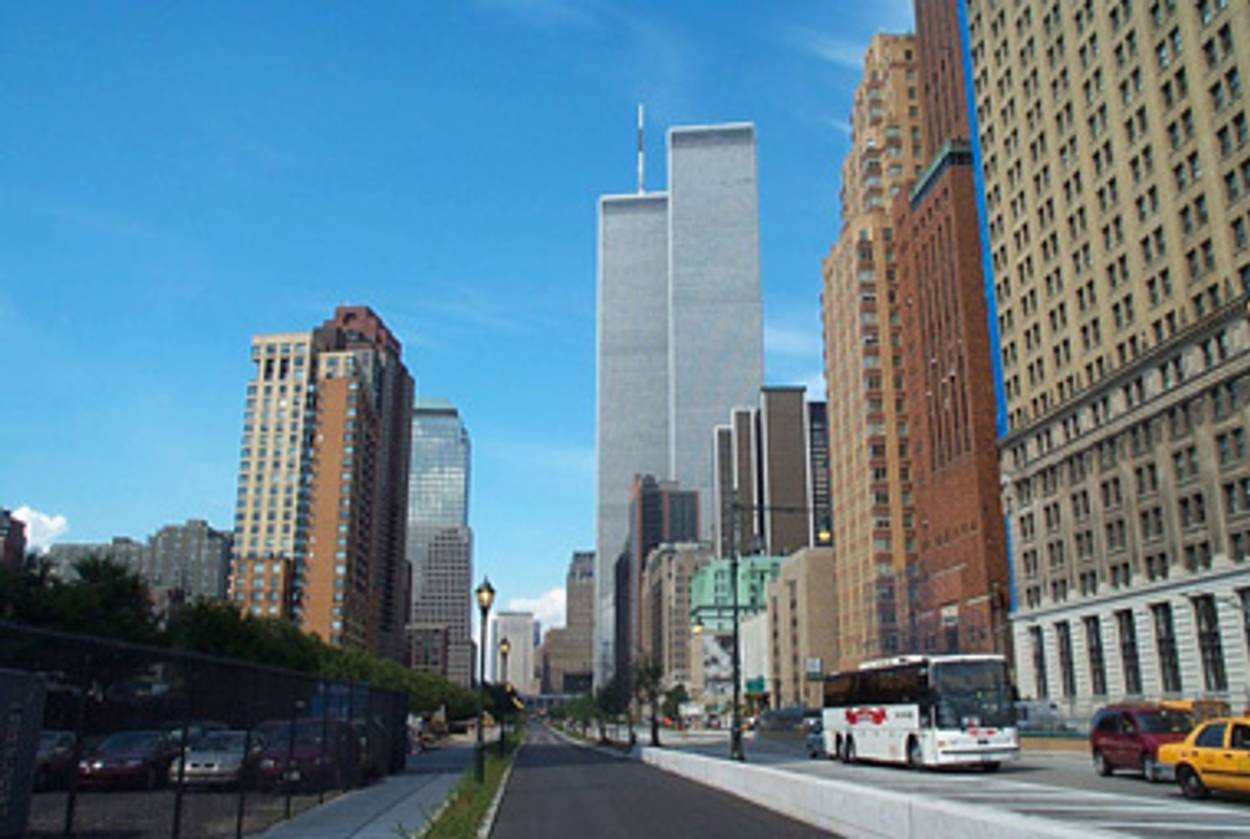Ground Zero for a Fight
Cordoba House is like a JCC for Muslims




If you’re looking to be involved in the more benign aspects of local government, a seat on the Landmarks Preservation Commission is generally a safe bet. But for two hours yesterday, 11 members of the New York City Commission sat in front of more than 100 people, silent and exhausted, and listened to heavy pleas and heated words over the status of 45-47 Park Place, an unremarkable building that has rested in lower Manhattan for over 150 years. It happens to be the proposed space for the Cordoba House, a Muslim center. And it happens to be two blocks from the World Trade Center site.
Although the project’s fate is in local hands (it has received its Community Board’s OK), the proposal has emerged as a wedge issue in statewide politics: Former Republican Congressman Rick Lazio has made his opposition to the project a centerpiece of his campaign for governor. He joined dozens who shuffled up to the microphone to address the Commission. Most of the speakers urged the Commission to grant landmark status to the building. They want to preserve the city’s historical landscape, they said, but, more importantly, halt the center’s construction.
A handful of speakers voiced their support for the project. Muzaffar Chishti, a Muslim NYU law professor, cited the “interfaith opportunity” that the Cordoba House presented. “I happen to be married to a Jewish woman from New York,” he noted. Opponents in the crowd did not appreciate this tactic. Some shouted sarcastically, “Oh, great!” and “Isn’t that nice?” Opposition to the center, said Zead Ramadan, the board president of New York’s Council on American-Islamic Relations, is not a unique phenomenon. It is the “same thing that’s happening” in other parts of the city, he continued at the microphone: “It’s called Islamophobia.”
But opponents of the proposal, who were swift to note their lack of discrimination, saw the center as inextricably bound to its location, which was actually hit by one of the planes. Like several speakers, Sally Regenhard shared the story of a loved one who died in the terrorist attacks nine years ago. She lost her son. In emotional remarks, she begged the Committee not to “fold to political forces, to political correctness.” She then drew an analogy to a convent a group of Carmelite nuns built at Auschwitz in the 1980s. Eventually, Pope John Paul II drew it to a close because of its strain on Catholic-Jewish relations. We should not, Regenhard insisted, repeat the blunder.
Watching from the side of the auditorium, the Cordoba House proponents quietly disagreed. The house, they claim, is not a mosque, but a community space modeled after the 92nd Street Y and the Jewish Community Center.
In fact, they have partnered with the Manhattan JCC’s executive director, Rabbi Joy Levitt, who, as The Forward reported, voiced her endorsement of the proposed space and of its leader, Imam Feisal Abdul Rauf.
But support for the project is not unanimous in the Jewish community (what is?). Two members of a lower Manhattan synagogue sat near the back, applauding the speakers that called for a landmark status. They came to resist the building of the Center—in their opinion, a clandestine mosque—in the shadow of the former towers.
Meanwhile, Robert Shusterman sat for most of the hearing holding a befuddling sign. It simply declared, “FREE HAPPY ENDINGS.” As he took the floor, he explained that he originally opposed the plan. But he had changed his mind, determining that opposition was based on an entrenched fear of Islam. “Is this meeting about landmarks or about Muslims?” he asked rhetorically. His sign, he went on, was intended as a crude innuendo to defuse the tension. The landmark status supporters voiced their disapproval. Members of the Cordoba House laughed. At the back of the auditorium, I asked Shusterman if he was Jewish. Of course, he said. “Who else would be crazy enough to hold a sign like this?”
Mosque’s Plan to Expand Near Ground Zero Sparks Debate [The Forward]
The Ground Zero Mosque As Wedge Issue [Politico]
Earlier: Ground Zero Mosque Gets Ok
Mark Bergen is a journalist based in Bangalore. His Twitter feed is @mhbergen.